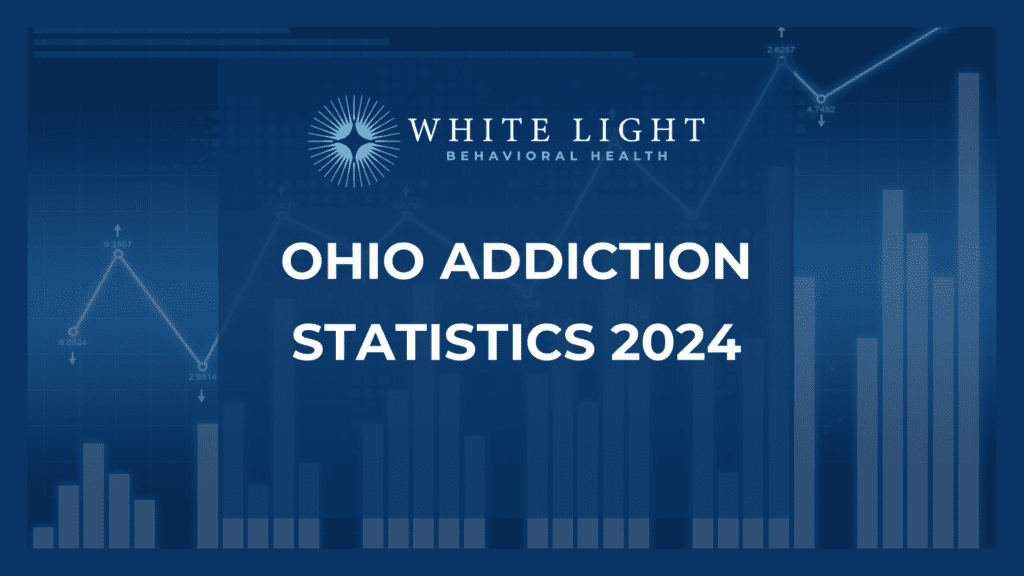The Relationship Between Alcoholism and Genetics
You may have observed that alcohol use disorder often runs in families. You may even have heard people refer to the “alcoholism gene.” This has led some to believe that alcoholism is purely based on genetics. While it is true that genetics do play a role in the likelihood of a person developing alcohol use disorder (AUD), there are several factors to consider when looking to pinpoint the cause of this multifaceted disorder.
Alcoholism and Genetics
Studies have shown that if a person has a family history of alcohol use disorder there is a 50% chance that the individual will be predisposed to this disorder. However, all of the specific genetic factors that cause a person to be predisposed to alcohol use disorder are still being studied. Researchers agree that it is important to be able to identify the biological factors that make a person predisposed to this disease as this can be a vital step in helping to control it.
Understanding Genetics and Alcoholism
Genetics is the study of human genes and how they affect the traits that people have. Each person has around 20,000 different genes. “Heredity” is what parents pass on to their children through their DNA.
Genetic predisposition happens when genes and heredity work together to make it more likely for a person to have a certain behavior, trait, or disease. But just because you have a predisposition for something doesn’t mean it will happen. It can just increase the chance. Someone might be more likely to develop alcohol use disorder, but it might never actually happen.
When talking about genetics and alcohol problems, some people talk about learned behavior and how your surroundings affect you. Learned behavior is what you pick up from watching and experiencing things. It is not connected to your genes. It comes from what you see and do as a kid, like copying your parents or friends.
How Genes May Impact Alcohol Use Disorder
Some genes can increase a person’s risk of developing AUD, and some genes may lower a person’s risk of developing this condition. Some genes play a role directly and others indirectly. For example, A study by Wall TL published in the National Library of Medicine published in 1995 has shown that some people of Asian descent have a gene that impacts their rate of alcohol metabolism.
As a result, individuals with these genes develop more severe reactions to drinking alcohol. They become nauseated quickly, experience extreme flushing, and can develop a rapid heartbeat as they drink. Some people who experience these adverse side effects from alcohol avoid drinking it. This, in turn, may help prevent them from developing AUD.
As researchers learn more about genes’ impact on human health, they have discovered different factors that can affect or alter the expression of a person’s genes. According to Centers for Disease Control and Prevention, Epigenetics is defined as “your behaviors and environment can cause changes that affect the way your genes work,” and scientists are starting to see how it impacts a person’s risk of developing AUD.
Does the Alcohol Addiction Gene Exist?
A person’s risk of developing alcohol use disorder is influenced by several genes working together. Instead of just one “alcohol gene,” researchers have identified hundreds of locations in human genetic information, each with various variations that can affect a person’s likelihood of developing AUD. Some of these genes, like ADH1B and ALDH2, are closely linked to the risk of developing a drinking problem.
Since multiple genes play a role in predisposing a person to AUD, parents can carry this predisposition, but it may also skip a generation. Conversely, parents without an AUD predisposition could have children who do.
No one is born with alcohol use disorder. They may be born with genes that make them more susceptible to developing the disorder, but genetics account for only 50% of the risk. The remaining 50% comes from environmental and social factors that a person experiences during childhood and throughout life.
Alcoholism and Genetics: Studying Twins
In a significant study led by Stephen H. Dinwiddie in 1997, researchers compared fraternal twins and identical twins. Identical twins share the same 23 pairs of chromosomes, making them look very similar to each other. This study is still referenced in psychological research today on platforms like ResearchGate.
In contrast, fraternal twins don’t have identical sets of chromosome pairs, which explains why they may look different from each other. The study aimed to explore the idea that if alcohol addiction were primarily based on genetics, identical twins with the same genetic predisposition for AUD would show similar expressions of the disorder, taking into account environmental factors. This research involved more than 5,800 participants, including both male and female twins.
In a study discussed by Joseph Nowinski in Psychology Today in 2013, it was found that if one identical male twin developed Alcohol Use Disorder (AUD), there was a 50% chance that the other twin would also develop it at some point in their life. For female twins, the chance was 30%. This suggests that there’s something specific in the genetic makeup of identical male twins that makes them more likely to develop AUD if one twin has it, compared to females.
Mitigating Genetic Risk
A person’s genetic makeup accounts for only about 50% of their risk for developing alcohol use disorder (AUD). This leaves room for environmental influences that individuals may have some control over and will influence their likelihood of dealing with alcohol-related issues. Just as treatment for AUD isn’t a one-size-fits-all solution, there’s no universal approach to preventing potential alcohol problems.
For some, the most effective strategy in reducing their risk of developing alcohol misuse issues is complete abstinence from alcohol. Others focus on setting priorities and goals, avoiding leaving their alcohol consumption to chance or arbitrary daily limits. Some even designate specific alcohol-free days in their week. Regardless of the chosen plan, the key to success lies in adherence and the establishment of clear guidelines for what and when to drink. Well-defined guidelines enable individuals to identify the early signs of developing issues with alcohol consumption.
Moreover, for some individuals, success hinges on recognizing and changing activities that involve alcohol consumption. Individuals may seek out enjoyable social interactions that don’t revolve around alcohol. If someone finds themselves turning to alcohol as a coping mechanism for stress in social situations, it may be helpful to explore alternative coping methods, consult a professional, and seek out less stressful social environments.
Regardless of the coping mechanisms individuals employ to prevent the development of AUD, understanding the underlying reasons behind these choices is crucial. Taking the time to identify the motivations for making these adjustments in one’s life or routine can be beneficial. Proactive measures play a significant role in minimizing risky behaviors before they escalate into AUD.
Why Children of Alcoholics Often Struggle
The children of individuals dealing with AUD often face challenges with the same condition as they grow older. Researchers have found a connection between alcohol consumption during pregnancy and damage to the fetal brain. This can increase the child’s risk of motor function problems, learning disabilities, and even developing AUD themselves. However, it is essential to understand that this doesn’t guarantee that children of alcoholics will automatically experience these negative consequences. Early intervention can reduce the impact of heavy drinking during pregnancy on the child.
Exposure to alcohol after birth is another factor contributing to the presence of alcoholism in families. Additionally, this link may be attributed to the presence of harmful substances in the breast milk of mothers who are dealing with alcoholism.
Regardless of your family background, it is crucial to be vigilant for early warning signs of alcoholism and alcohol abuse. While being the child of an alcoholic can increase your risk, having parents who didn’t struggle with alcohol misuse doesn’t guarantee your immunity from these issues.
Breaking the Cycle
The key to success is focusing on the factors that you can control. No one can control their genes, and most children have little control over the environment that they grow up.
Individuals who grew up in a home where alcohol use disorder was the norm may be impacted in ways that they do not realize. Instead of trying to erase painful memories, seek professional guidance. Avoiding feelings does not make them go away. If anything, it causes them to linger and fester.
At White Light Behavioral Health, we provide cutting-edge treatment to our neighbors in Ohio and throughout the Midwest. Our service offerings include the full continuum of treatment for individuals or families battling with the consequences of alcohol use disorder.
Our mission is to provide our clients with an experience that will transform them and their loved ones. Living a life free of alcohol use is possible. It is something that can be attained only with the highest standard of clinical excellence in a safe, dignified recovery environment backed up by knowledgeable yet compassionate medical care.
It is important for people to feel comfortable talking about addiction and sharing their stories. Watching someone you care about be a victim of substance use disorder can lead to feelings of disbelief, anger, and disappointment.
For this reason, it takes a lot of strength to break the intergenerational cycle of addiction and start fresh. Sharing your experiences with others who have gone through the same challenges can help you while inspiring others who are dealing with the same things you may be dealing with.
Addiction may be part of your family’s past, but it does not have to be what defines or determines your future. Generations of alcohol use disorder do not define who you are today or what you will do in your life in the future. Each individual has the opportunity to stand up to intergenerational addiction, take the reins to control their life, and be a source of encouragement for others.
Alcohol use disorder (AUD) is a multifaceted issue influenced by various complex risk factors. These factors encompass genetics, family history, one’s current environment, gender, and mental health conditions. Stress in both work and home life can trigger alcohol addiction, with alcohol often providing a temporary sense of relief and happiness amidst stress.
This reinforces the inclination to turn to alcohol as a coping mechanism. Additionally, individuals grappling with mental illnesses, such as anxiety, depression, bipolar disorder disorder, and schizophrenia, are more likely to struggle with comorbid AUD. Notably, women are particularly vulnerable to developing AUD more rapidly than men, owing to differences in body mass, hormonal fluctuations, and metabolism. Recognizing these various elements at play is crucial in addressing and preventing alcohol-related issues and promoting healthier, more informed choices.
Is alcoholism solely determined by genetics?
Alcoholism is a complex condition influenced by various factors, including genetics, environment, and individual behaviors. While genetic predispositions can increase the likelihood of developing alcoholism, they don’t solely determine its presence. Environmental factors, such as upbringing, peer influences, and stress, also play significant roles.
What role do genetics play in alcohol addiction?
Genetics can contribute to an individual’s susceptibility to alcohol addiction. Research suggests that genetic factors account for about half of the risk of developing alcoholism. Specific genes associated with alcohol metabolism, neurotransmitter function, and behavioral traits can influence an individual’s response to alcohol and their likelihood of developing dependence.
Can a family history of alcoholism increase the risk of developing the condition?
Yes, having a family history of alcoholism can increase an individual’s risk of developing the condition. Studies have shown that genetic factors contribute significantly to the risk of alcoholism, with individuals who have relatives affected by alcoholism being more susceptible themselves. However, genetics is just one piece of the puzzle, as environmental factors also play a crucial role.
How does alcoholism impact mental health?
Alcoholism can have significant adverse effects on mental health, exacerbating existing conditions and leading to the development of new ones. Chronic alcohol misuse can contribute to mood disorders like depression and anxiety, impair cognitive function, and increase the risk of suicide. Alcohol dependence can also worsen symptoms of pre-existing mental health conditions, making treatment more challenging.
How do genetics influence alcohol tolerance?
Genetics can influence alcohol tolerance, affecting how individuals respond to alcohol consumption. Variations in genes related to alcohol metabolism, such as those encoding alcohol dehydrogenase and aldehyde dehydrogenase enzymes, can impact how quickly alcohol is broken down in the body. Individuals with certain genetic variants may experience heightened sensitivity to alcohol or may metabolize it more slowly, leading to lower tolerance levels.
Can genetic testing predict susceptibility to alcoholism?
Genetic testing can provide insights into an individual’s susceptibility to alcoholism by identifying specific genetic variations associated with alcohol dependence. While genetic testing alone cannot predict with certainty whether someone will develop alcoholism, it can assess the presence of genetic risk factors. However, it’s essential to consider genetic results alongside other factors, such as family history, environmental influences, and personal behaviors, to understand the overall risk profile accurately.
How does epigenetics contribute to alcoholism?
Epigenetics, the study of changes in gene expression without alterations to the underlying DNA sequence, plays a significant role in alcoholism. Environmental factors, such as stress, diet, and alcohol exposure, can influence epigenetic modifications, which, in turn, affect gene expression related to alcohol metabolism, reward pathways, and behavior. These epigenetic changes can contribute to the development and progression of alcohol use disorder.
What is the relationship between alcoholism and obsessive-compulsive disorder (OCD)?
Alcoholism & OCD can co-occur, although they are distinct conditions with separate diagnostic criteria. Individuals with OCD may turn to alcohol as a way to self-medicate and alleviate symptoms of anxiety or intrusive thoughts. Conversely, excessive alcohol use can worsen OCD symptoms and impair cognitive function, exacerbating compulsive behaviors and interfering with treatment effectiveness.
What are the psychological factors contributing to alcoholism?
Psychological factors play a crucial role in the development and maintenance of alcoholism. Individuals may turn to alcohol as a coping mechanism for stress, anxiety, depression, or trauma, seeking relief from emotional pain or discomfort. Additionally, personality traits such as impulsivity, sensation-seeking, and low self-esteem can predispose individuals to alcohol misuse.

Share This Post



